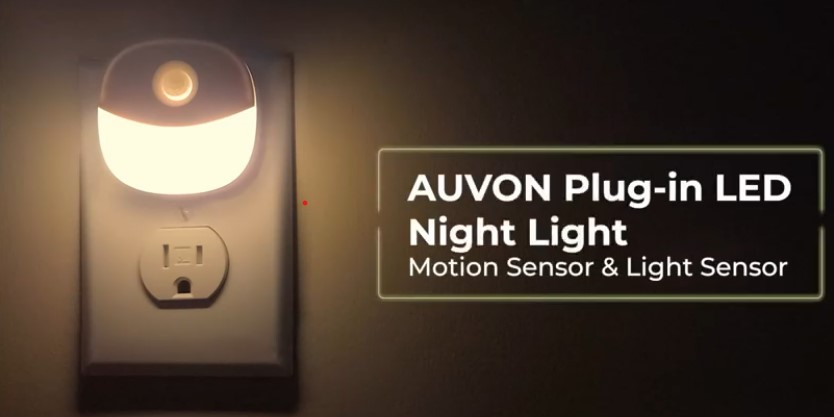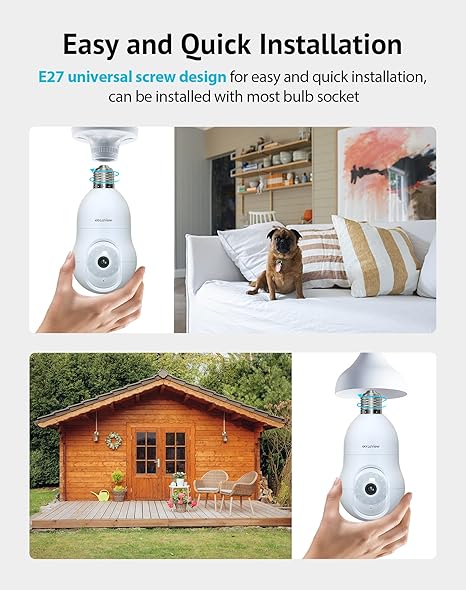Home security is about more than just simply alarms, cameras, and the latest technology in locks; it’s about mindset. People focus on the tools, devices, and hardware they can buy to increase their safety. But all the tools in the world won’t help if you’re mentally unprepared to face the reality of a home invasion. This article isn’t only about specific strategies or step-by-step instructions, it aims to instill a mindset of awareness, responsibility, and self-preservation to help you stay safer if you ever find yourself in a dangerous situation.

Table of Contents
Toggle1. Don’t Be Passive
One of the most dangerous mistakes you can make during a home invasion is to be passive. This is the time act quickly and actively! People who froze during an invasion, paralyzed in fear, while intruders had free rein in their homes are the people who have failed. Home invasions are inherently chaotic, with events unfolding unpredictably.
In situations like these, hesitation can embolden an attacker. Take, for example, the sound of racking a shotgun behind a closed door. Even if you’re not intending to use it, the unmistakable sound serves as a warning. The intruder doesn’t know who or what is behind that door, and the uncertainty alone can prompt them to leave. Remember, your first step is to refuse to be a passive victim, which may give you a psychological edge over your would-be assailant.
2. Don’t Be Naive
Setting yourself up for an unprepared and potentially dangerous reaction if it does happen. Accepting that you might face a confrontation—even if you never do—is the first step toward being proactive rather than reactive.
When you acknowledge the potential for bad situations, you mentally prepare yourself to take action rather than freezing in fear. While nobody wants to think about being hurt, realizing that humans are surprisingly resilient can help dissolve some of the paralyzing fear surrounding confrontation. The point here is not to live in fear but to live with awareness and readiness. Your proactive mindset could be what stands between you and potential danger.
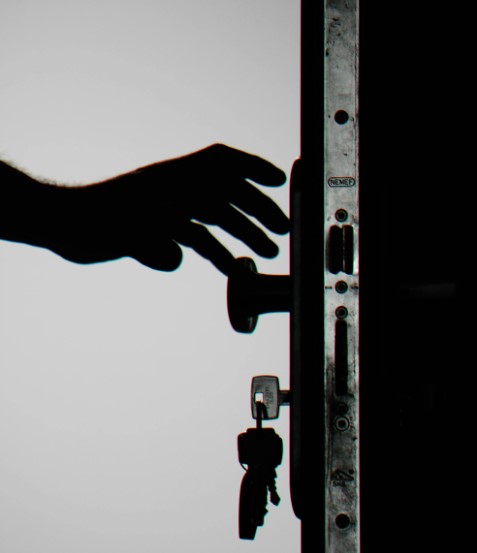
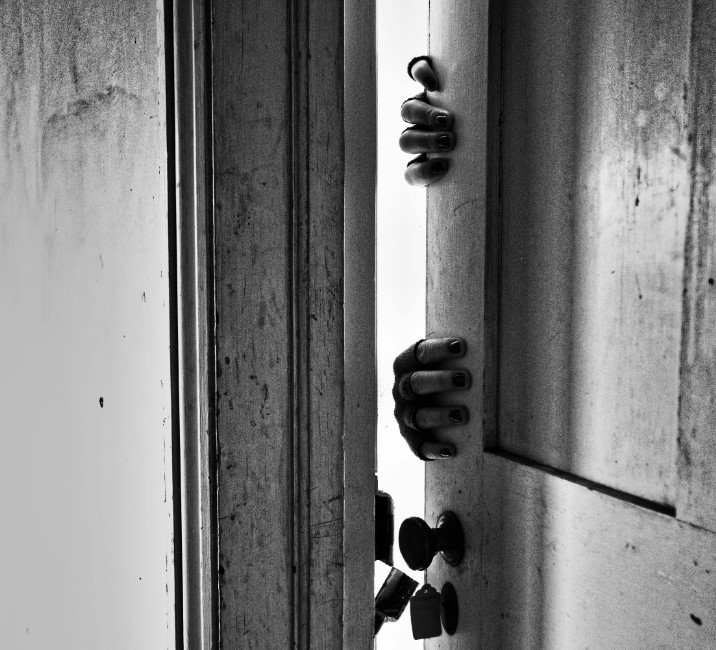
3. Don’t Ignore Your Door Locks at Night
One common yet potentially dangerous oversight is neglecting to lock doors and windows at night. Although it sounds like common sense, people often believe their neighborhood is safe, or they simply forget. However, unlocked doors and windows present an open invitation to anyone looking for an easy target. In many cases, home invasions aren’t premeditated but crimes of opportunity where a criminal tries a door, finds it unlocked, and decides to enter.
Ensuring that all doors and windows are secured before bed can eliminate this opportunity, potentially making your home a less appealing target. Besides, consider upgrading your locks if necessary. Deadbolts and reinforced locks are more challenging to break and provide an additional layer of security. Motion-sensor lights near entrances can also serve as deterrents, catching potential intruders off guard. While locks and lights aren’t foolproof, they contribute to an environment that can discourage criminals from attempting a break-in in the first place.
4. Don’t Be Cocky
A cocky attitude is a surefire way to find yourself in a dangerous situation. It’s especially common among younger individuals who feel invincible or underestimate the threat before them. Overconfidence can lead you to take unnecessary risks or fail to assess the severity of the situation, leaving you vulnerable to danger.
Take it from those who’ve experienced a scare due to overconfidence. The shock of realizing that you’re in over your head can be a sobering experience, but not everyone gets that chance to learn from their mistakes unscathed. Humility is a critical component of any safety mindset. Understanding your limitations and recognizing that you can be caught off guard makes you more cautious, alert, and ultimately prepared to act wisely if necessary.
5. Don’t Overreach Your Boundaries
An instinctive reaction during a home invasion may be to pursue or confront an intruder aggressively. However, this response often escalates the danger and pulls you away from your primary goal: keeping yourself and your loved ones safe. While it’s natural to want to protect your property, remember that safety should always take precedence over property defense or revenge.
For instance, if an intruder flees your home, chasing them down the street isn’t just risky—it can be legally complicated, too. Laws around self-defense vary, and many jurisdictions don’t support actions taken outside your home, especially if the criminal is retreating. Let law enforcement handle pursuit. Your priority is to stay vigilant within the bounds of the law and avoid escalating situations unnecessarily.
6. Don’t Underestimate the Threat
While it’s easy to think of criminals as careless or incompetent, this mindset can be dangerous. Criminals often act strategically, knowing that hesitation or complacency on your part gives them the upper hand. Never assume that an intruder is unprepared or that they’ll respond predictably. Underestimating a potential threat leaves you vulnerable to unexpected attacks or swift escalations.
A critical part of keeping yourself safe is maintaining situational awareness. If you sense a threat, allow yourself time to process and evaluate the situation without underestimating the risks. Criminals rely on their targets being caught off guard, so even a slight edge in awareness can help you better navigate and potentially defuse a volatile situation.
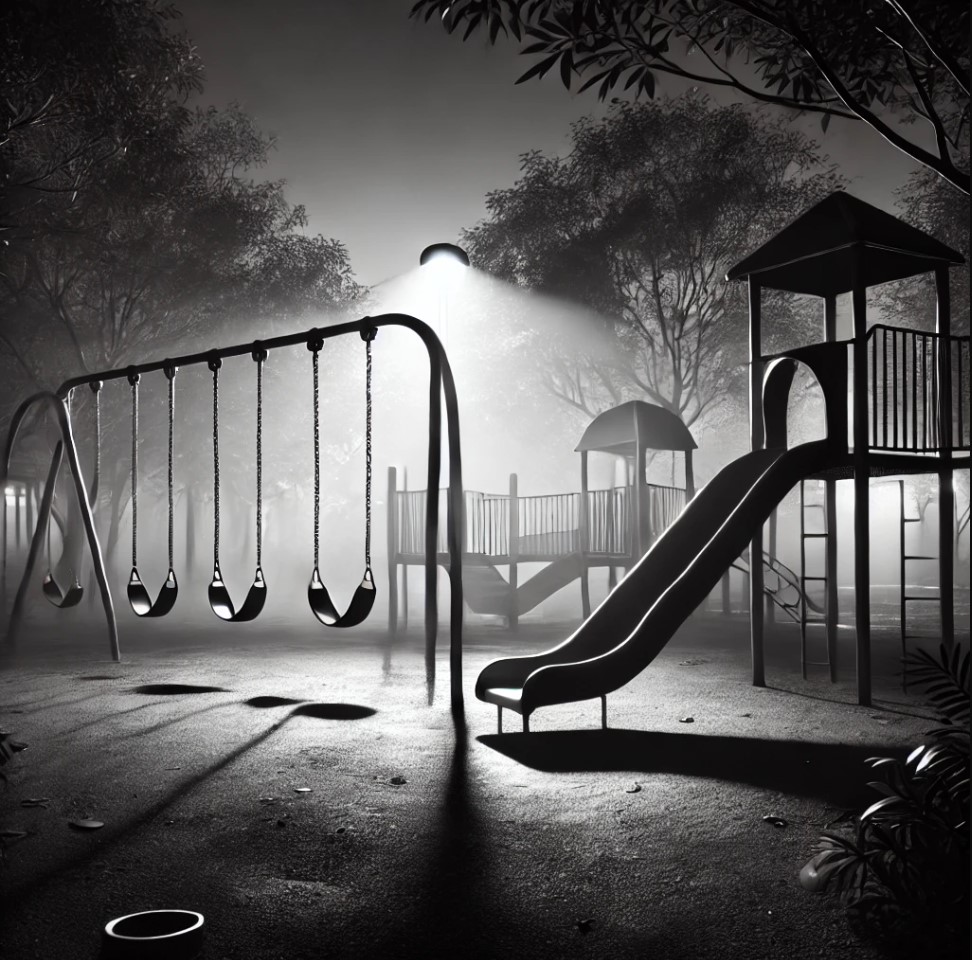
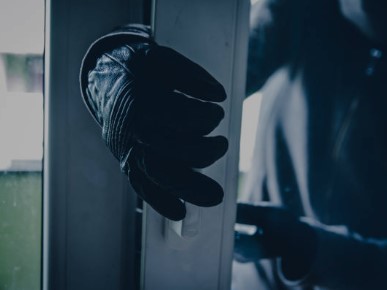
7. Don’t Assume That Physical Security Measures Are Enough
Many people rely solely on alarms, locks, and security cameras, thinking that these are all they need to be safe. While these measures are crucial, they’re only part of a comprehensive home defense strategy. A home invasion doesn’t just challenge your physical defenses but also your mental preparedness. If you’re not mentally prepared to face a threat, then even the most advanced security system can only do so much.
Consider ways to reinforce your home security beyond physical devices. Develop mental strategies for handling potential threats and educate yourself on safe responses in high-stress situations. For instance, it can be beneficial to have a “safe room” or an emergency contact plan that involves alerting neighbors or authorities quickly. Knowing what to do, who to call, and where to go in a worst-case scenario can bolster your confidence and reduce panic. Your security is as much a matter of the mind as it is of technology.
Final Thoughts
When it comes to home security, having the right mindset can be just as important as having the right equipment. By avoiding passivity, naivety, cockiness, and overconfidence, and by taking basic precautions like securing your home each night, you put yourself in a much better position to handle a home invasion if it ever occurs. Don’t let overreliance on physical security measures lead you into complacency; take the time to develop a proactive mindset that prioritizes caution, preparedness, and calmness in the face of a potential threat.
It’s uncomfortable to think about home invasions and confrontations, but a bit of preparation now could make all the difference in a crisis. Security starts with awareness, which starts with you.

